Child Brain Injury Claims
New-born babies have two soft spots on their head called fontanels. These are gaps in the skull that give the baby’s head the flexibility to squeeze through the narrow birth canal and later to give the baby’s brain room to grow. As the child grows, the skull develops and the fontanels close; usually between the ages of 2 months to 18 months. In the days and weeks after birth the baby is unlikely to move very far under its own volition, but extra care must be taken when handling small babies as any knock to the head, or pressure on the skull can be more serious than later in life when their skull is stronger.
To compound this, babies prefer to arrive head-first, and so any assistants to the birth are faced with an incredibly delicate part of the baby when trying to help its arrival.
Any kind of impact or sustained pressure on a baby’s delicate skull can result in damage to the brain, and this can lead to a huge range of potential challenges for the child throughout its life. These issues might occur during the birth itself, or during postnatal care, but another risk is that of a lack of oxygen. During its time in the womb the baby relies on its mother to provide it with oxygenated blood, only taking its first breath once it is out in the wide world. Any delay during the birth can put the baby at risk of not getting sufficient oxygen, and this can itself cause brain damage.
Some common signs of a brain injury in babies shortly after birth include:
• An unusually small head
• An abnormally large forehead
• An abnormally shaped spine
• Seizures
• Neck Stiffness
• Distorted facial features
• Difficulty in focussing
Some of these situations might occur as a result of issues within the pregnancy that the delivery team cannot be held responsible for, but in some cases it is due to delays during birth, or issues that are not addressed properly during the labour period that can lead to these devastating outcomes. Take for example the case of a baby born at Hillingdon Hospital who was suffering from foetal distress for hours before he was eventually delivered. Midwives failed to recognise the urgency of the baby’s needs and due to the delay in his birth he suffered from catastrophic brain injury. While his physical abilities were unaffected, he suffers from profound intellectual impairment and was awarded £1.6 million to help support him throughout his life.
If your child suffered any kind of brain injury as a result of negligence, then it is likely that you will be eligible to make a claim for compensation. Contact us today and let us help you and your child get the pay-out you and your family deserve.

Claiming For Your Medical Negligence
Free Legal Advice
If you are unsure whether you can claim compensation for Medical Negligence, then call our personal injury claims team for free, no obligation advice on making a claim. They will ask you some simple questions about your condition, talk to you about what’s happened and can tell you if you have a viable claim for compensation or not. Call us free on 0800 999 1374.
Latest Medical Negligence News
HSE To Launch Construction Dust Blitz
The Health and Safety Executive is launching a new initiative targeting the construction industry across the country with a specific focus on the dangers of site dust. While construction sites are notoriously dangerous in terms of accidents such as slips, trips, falls...




